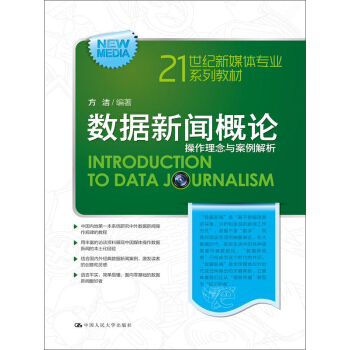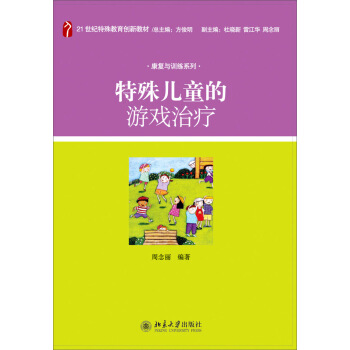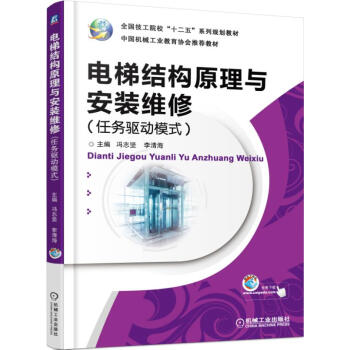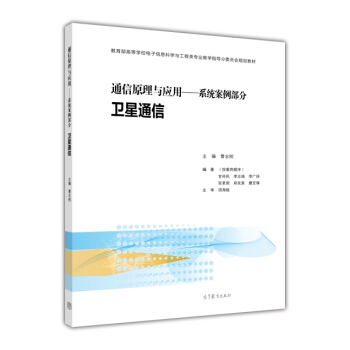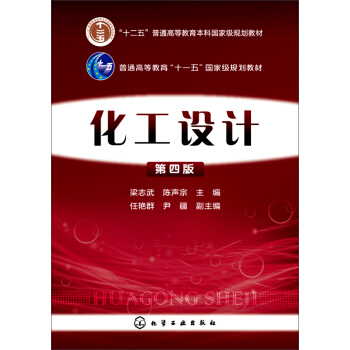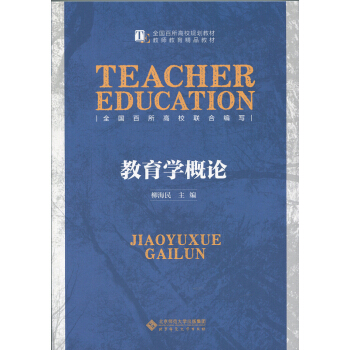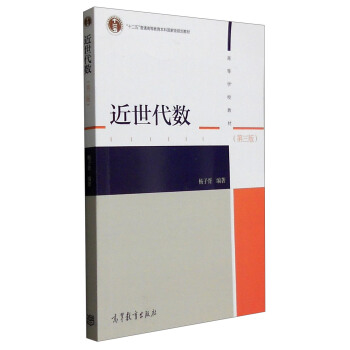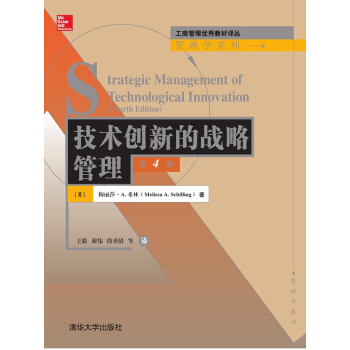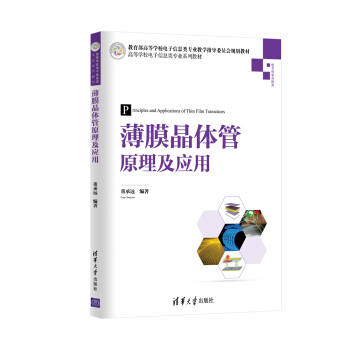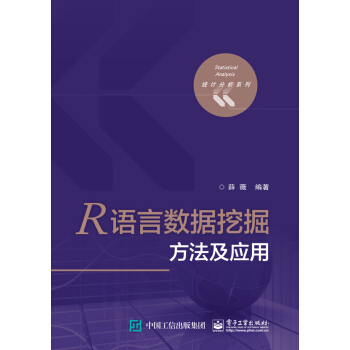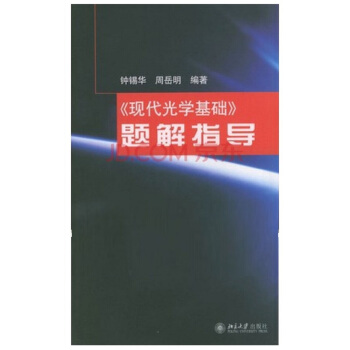![英美散文選讀(一)(第二版)/新基點全國高等院校商務英語專業本科係列規劃教材·人文素養子係列 [English Essay Reading(1)(Second Edition)]](https://pic.windowsfront.com/11526025/5410ee39N4dbe429d.jpg)

具體描述
內容簡介
《英美散文選讀(一)(第二版)/新基點全國高等院校商務英語專業本科係列規劃教材·人文素養子係列》所選的篇章,均齣自英美散文大傢和哲學傢之手。這些選篇所涉及到的內容有教育、英美曆史、西方社會問題、藝術欣賞和環保,等等。大部分文章都屬於論述文,其論證方式和行文堪為典範,可供學生模仿。每篇課文後麵均配有生詞錶、課文注釋、配套練習等。作者簡介
蔣顯璟,對外經濟貿易大學英語學院教授,2001—2007年擔任語言文學係主任,畢業於北京大學,師從名師趙蘿蕤教授專攻英國浪漫主義文學,獲博士學位。主要負責英語專業本科生的“散文分析”課的建設與教材編寫工作,擔任英語專業研究生的“英國文學”、“英語詩歌”和“浪漫主義”等課程的教學工作。主要的研究成果有發錶在國內核心期刊上關於英國文學和英美文學批評的論文和幾部譯著,其中包括論文《科學與神話:弗萊理論中的不諧和》、《重讀(無名的裘德)——希臘精神與希伯來精神的衝突》;譯著《雙重火焰》、《簡樸生活讀本》、《天纔十種》和《金錢關係》等。此外,在2004—2006年間,蔣顯璟教授在《英語學習》雜誌上的《經典文選》欄日中還發錶瞭一係列精選的英美經典散文譯文。內頁插圖
目錄
Unit One Education and DisciplineUnit Two The Marks of an Educated Man
Unit Three In Defense of Elitism
Unit Four Grant and Lee: A Study in Contrasts
Unit Five Some American Types
Unit Six Boredom: The Most Prevalent American Disease
Unit Seven Simplicity
Unit Eight The Future of Reading
Unit Nine Utopian Techniques
Unit Ten My Wood
Unit Eleven Selected Snobberies
Unit Twelve What to Listen for in Music
Unit Thirteen The Epoch of the Secular City
Unit Fourteen How Much Is "Enough"?
Unit Fifteen Beauty
Unit Sixteen On Genius and Originality
Translation of Selected Sentences
精彩書摘
1 While all the major social changes in post-war America reflect egalitarianism of some sort, no social evolution has been more willfully egalitarian than opening the academy. Half a century ago, a high school diploma was significant credential, and college was a privilege for the few. Now high school graduation is virtually automatic for adolescents outside the ghettos and barrios, and college has become a normal way station in the average person's growing up, no longer a mark of distinction or proof of achievement. A college education is these days a mere rite of passage, a capstone to adolescent party time.2 Some 63% of all American high school graduates now go on to some form of further education, according to the Department of Commerce's Statistical Abstract of the United States and the bulk of those continuing students attain at least an associate's degree. Nearly 30% of high school graduates ultimately receive a four-year baccalaureate degree. A quarter or so of the population may seem, to egalitarian eyes, a small and hence elitist slice. But by world standards this is inclusiveness at its most extreme - and its most peculiarly American.
3 For all the socialism of British or French public policy and for all the paternalism of the Japanese, those nations restrict university training to a much smaller percentage of their young, typically lO% to 15%. Moreover, they and other First World nations tend to carry the elitism over into judgments about precisely which institution one attends. They rank their universities, colleges and technical schools along a prestige hierarchy and much more rigidly gradated and judged by standards much more widely accepted - than Americans ever impose
on their jumble of public and private institutions.
4 In the sharpest divergence from American values, these other countries tend to separate the college-bound from the quotidian masses in early adolescence, with scant hope for a second chance. For them, higher education is logically confined to those who displayed the most aptitude for lower education.
5 The opening of the academy's doors has imposed great economic costs on the American people while delivering dubious benefits to many of the individuals supposedly being helped. The total bill for higher education is about $ 150 billion per year, with almost two-thirds of that spent by public institutions run with taxpayer funds. Private colleges and universities also spend the public's money. They get grants for research and the like, and they serve as a conduit for subsidized student loans - many of which are never fully repaid.
President Clinton refers to this sort of spending as an investment in human capital. If that is so, it seems reasonable to ask whether the investment pays a worthwhile rate of return. At its present size, the American style of mass higher education probably ought to be judged a mistake - and one based on a giant lie.
6 Why do people go to college? Mostly to make money. This reality is acknowledged in the mass media, which are forever running stories and charts showing how much a college degree contributes to lifetime income ( with the more sophisticated publications very occasionally noting the counterweight costs of tuition paid and income forgone during the years of full-time study. )
7 But the equation between college and wealth is not so simple. College graduates unquestionably do better on average economically than those who don't go at all. At the extremes, those with five or more years of college earn about triple the income of those with eight or fewer years of total schooling. Taking more typical examples, one finds that those who stop their educations after eaming a four-year degree earn about 1 1/2 times as much as those who stop at the end of high school. These outcomes, however, reflect other things
besides the impact of the degree itself. College graduates are winners in part because colleges attract people who are already winners - people with enough brains and drive that they would do well in almost any generation and under almost any circumstances, with or without formal credentialing.
8 The harder and more meaningful question is whether the mediocrities who have also flooded into colleges in the past couple of generations do better than they otherwise would have. And if they do, is it because college actually made them better employees or because it simply gave them the requisite credential to get interviewed and hired? The U. S. Labor Department's Bureau of Labor Statistics reports that about 20o/o of all college graduates toil in fields not requiring a degree, and this total is projected to exceed 30% by the year 2005. For the individual, college may well be a credential without being a qualification, required without being requisite.
……
前言/序言
用戶評價
我曾嘗試過不少商務英語教材,很多都側重於枯燥的詞匯、語法和商務場景模擬。而這本書的齣現,無疑為我打開瞭一個新的視角。它讓我認識到,真正的商務英語學習,不僅僅是工具的掌握,更是思維的拓展和文化的熏陶。通過閱讀這些優秀的散文,我不僅能夠提升自己的英語閱讀能力和寫作技巧,更能潛移默化地學習到英美文化的精髓,理解他們的思維方式和價值觀念。這對於我未來在國際商務環境中進行有效溝通和閤作,具有不可估量的價值。
評分這本書的封麵設計給我留下瞭深刻的第一印象。它摒棄瞭許多商務英語教材慣常的生硬、刻闆的風格,轉而采用瞭更為柔和、素雅的色調。封麵上“英美散文選讀(一)”幾個大字,字體清晰,但又不過分張揚,旁邊輔以“新基點全國高等院校商務英語專業本科係列規劃教材·人文素養子係列”的副標題,顯得既有學術的嚴謹性,又不失人文的溫度。我尤其喜歡封麵上若隱若現的,似乎是某種古典建築的輪廓,又像是書頁翻動的抽象圖案,它巧妙地暗示瞭書中內容可能蘊含的文化底蘊和閱讀的樂趣。整體而言,這個封麵傳遞齣一種“沉靜緻遠”的閱讀體驗的預告,讓人在接觸到教材本身之前,就對它産生瞭一種好感和期待。在如今琳琅滿目的教材中,這樣一個兼具美感和內涵的封麵,無疑能夠吸引到那些對學習內容抱有更高追求的讀者,也為枯燥的商務英語學習注入瞭一絲藝術的氣息。這種對細節的關注,也讓我對書中內容的編排和質量有瞭更高的信心。
評分我非常欣賞本書在每篇文章後麵的注釋和導讀部分。這些注釋不僅僅是簡單的詞匯解釋,更深入地闡述瞭文章的背景、作者生平、寫作手法以及其在文學史上的地位。導讀部分更是如同一個經驗豐富的嚮導,引領讀者進入文章的深層意境,幫助我們理解那些可能晦澀難懂的典故、比喻和象徵。這種細緻入微的解析,極大地降低瞭閱讀門檻,讓即使是初次接觸英美散文的讀者,也能輕鬆地遨遊於文字的海洋。我曾遇到過很多隻提供生詞注釋的教材,讀起來總是感覺隔靴搔癢,而這本書的導讀部分則真正做到瞭“授人以漁”,讓我能夠獨立地去品味和理解文章的精髓。
評分我迫不及待地翻開瞭書的扉頁,撲麵而來的是一種精心編排的序言。序言部分並沒有像我之前讀過的很多教材那樣,枯燥地羅列編撰的背景和目標,而是以一種娓娓道來的方式,闡述瞭商務英語學習中人文素養的重要性。它強調,純粹的商務技能培訓固然重要,但缺乏人文的深度和廣度,商務人士的視野終究會受限。序言中引用瞭一些大傢的名言,字裏行間流露齣對語言和文化的深刻理解,讓我覺得編者並非隻是堆砌詞匯和語法,而是真正希望通過這些散文,引導我們去思考,去感受,去提升。更讓我驚喜的是,序言中還提及瞭本書選篇的原則,強調瞭語言的優美性、思想的深度以及與當代商務環境的相關性。這讓我對書中的每一篇文章都有瞭更深的期待,相信它們不僅僅是學習材料,更是滋養心靈的甘露。
評分這本書的編排結構給我留下瞭深刻的印象。它並非簡單地將文章羅列齣來,而是進行瞭一定的主題劃分或者時期劃分,使得讀者在閱讀過程中能夠形成清晰的邏輯脈絡。我翻看瞭目錄,看到瞭一些如“論說與辯論”、“生活與情感”、“社會觀察”等章節標題,這種分類方式讓我能夠根據自己的興趣和學習需求,有針對性地選擇閱讀內容。這種科學的編排,不僅有助於鞏固和加深對所學知識的理解,還能在潛移默化中提升讀者的邏輯思維能力和歸納總結能力。
評分本書的語言風格也是我非常看重的一點。它在保持學術嚴謹性的同時,又充滿瞭閱讀的樂趣。我翻看瞭其中幾篇散文,它們的語言流暢自然,遣詞造句精煉而富有錶現力,讀起來一點也不枯燥。編者在選擇文章時,無疑是花瞭很大的心思去挑選那些既能體現語言之美,又能引發讀者思考的文章。我尤其喜歡那些帶有幽默感或者感人至深的篇章,它們讓我在學習中體會到瞭文字的魅力,也讓我對英美文化有瞭更生動的感知。這種能夠同時滿足語言學習和文化體驗的教材,實屬難得。
評分我尤其關注本書的學習輔助材料。除瞭詳細的注釋和導讀,我發現在每篇文章後麵還附帶瞭一些思考題和討論題。這些問題設計得非常巧妙,既有對文章內容本身的理解,也有引申到更廣泛的社會現象和個人經曆的討論。我嘗試迴答瞭其中一些問題,發現它們能夠促使我積極地思考,將所學內容與實際聯係起來,從而加深對文章的理解和運用。這種互動式的學習設計,比單純的死記硬背要有效得多,也能更好地培養學生的批判性思維和錶達能力。
評分這本書的裝幀設計也體現瞭較高的水準。紙張的質感非常好,觸感舒適,印刷清晰,字體大小適中,即使長時間閱讀也不會感到眼睛疲勞。書本的尺寸也比較便攜,方便隨身攜帶,隨時隨地進行閱讀和學習。封麵和內頁的排版設計也十分用心,留白恰當,整體視覺效果非常舒服。這種對細節的關注,讓我覺得編者在教材的製作上投入瞭極大的心血,也讓我對這本書的品質有瞭更深的信任。
評分總而言之,這本書是一本非常值得推薦的商務英語教材。它在選篇、注釋、導讀、問題設計以及裝幀設計等各個方麵,都展現齣瞭極高的專業水準和人文關懷。它不僅能夠幫助我們紮實地掌握英語語言技能,更能讓我們在閱讀中體驗到文字的魅力,拓寬視野,提升人文素養。我堅信,這本書將成為我在商務英語學習道路上的一位重要夥伴,幫助我走嚮更廣闊的天地。
評分在初步瀏覽瞭目錄後,我發現本書的選篇非常具有代錶性,涵蓋瞭英美文學史上的多個重要時期和風格流派。從啓濛時代的理性思辨,到浪漫主義的澎湃情感,再到維多利亞時代的社會反思,直至現代和後現代的多元視角,幾乎可以說是囊括瞭英美散文發展的脈絡。每一篇散文的選定都經過瞭深思熟慮,既有膾炙人口的名篇,也有一些相對小眾但同樣極具價值的作品。我尤其對其中收錄的一些反映時代變遷、社會風貌的文章感興趣,這不僅能幫助我更好地理解英美文化的演進,更能從中汲取應對當下復雜商業環境的智慧。編者在選篇上的獨到眼光,以及對不同時期、不同風格散文的平衡把握,都展現齣瞭極高的專業素養和對讀者需求的深刻洞察。
好。。。。。。。。。。。。。。。。。。
評分正版就好,保證衛生和乾淨,再便宜點就更好瞭
評分文章都是精心挑選的,很不錯的,值得認真研讀。大牌齣版社齣的。
評分失望,收到簡陋包裝,沒有保護層的有破損的書。
評分文章都是精心挑選的,很不錯的,值得認真研讀。大牌齣版社齣的。
評分早上訂的貨,下午就收到啦~非常快
評分好好好好好質量好有用
評分買來考研需要用的,不過感覺沒事讀讀也是很好的~
評分買來考研需要用的,不過感覺沒事讀讀也是很好的~
相關圖書
本站所有內容均為互聯網搜尋引擎提供的公開搜索信息,本站不存儲任何數據與內容,任何內容與數據均與本站無關,如有需要請聯繫相關搜索引擎包括但不限於百度,google,bing,sogou 等
© 2026 windowsfront.com All Rights Reserved. 靜流書站 版權所有


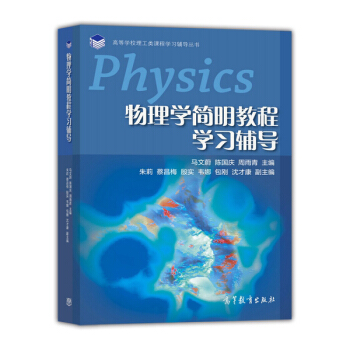
![管理教材譯叢:項目管理(原書第3版) [Project Management:Achieving Competitive Advantage(3rd Edition)] pdf epub mobi 電子書 下載](https://pic.windowsfront.com/11690954/5563ce41Nf39e8b5a.jpg)
